PsychNewsDaily Publishers
100 Summit Drive
Burlington, MA, 01803
Telephone: (320) 349-2484
PsychNewsDaily Publishers
100 Summit Drive
Burlington, MA, 01803
Telephone: (320) 349-2484
Caring for a cat requires vigilance for changes in behavior, appetite, and grooming, as these can indicate health issues that need prompt veterinary attention.
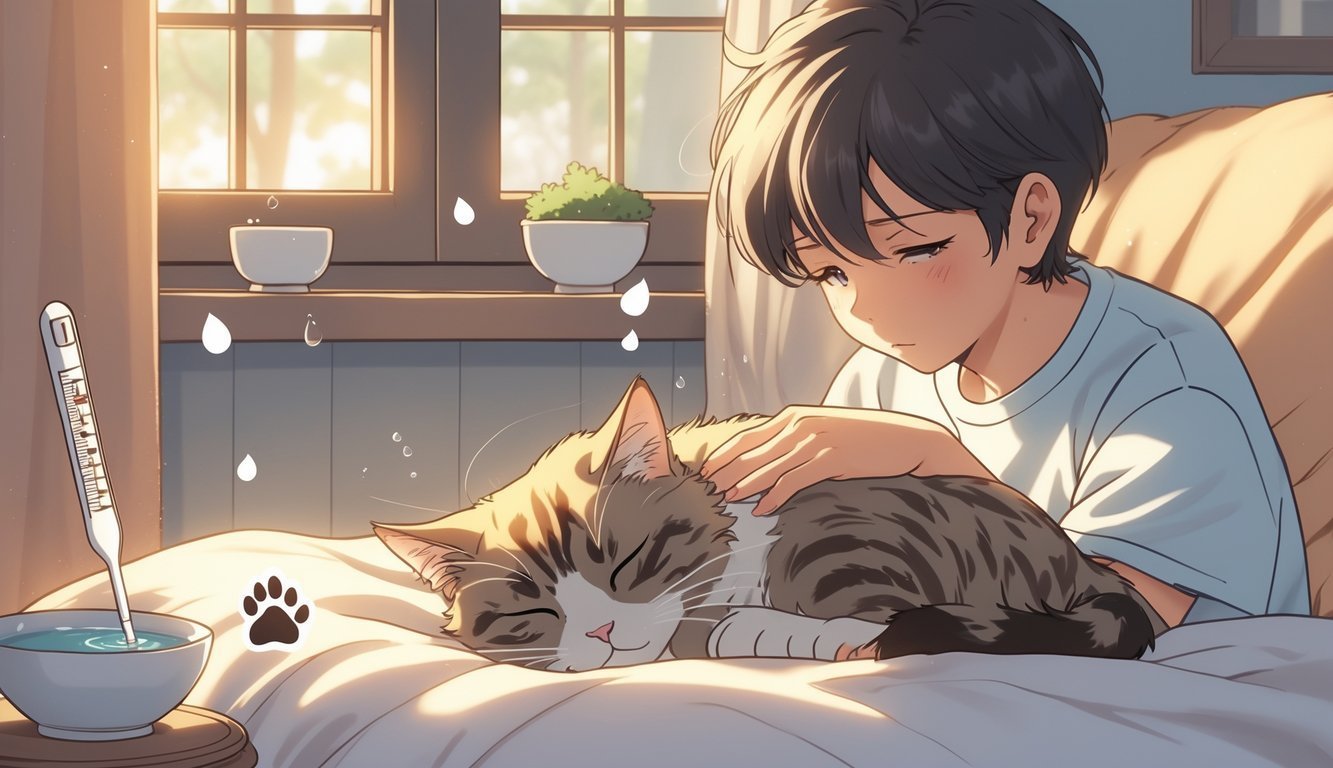
Caring for a cat means noticing not just their playful antics but also the little shifts in their everyday habits.
Cats have a knack for hiding when they’re not feeling well, so you might not catch a problem right away. If you learn to spot the early signs of sickness, you’ll be able to help your cat sooner and protect their health.
You don’t have to be a cat expert to notice when something’s off. Just keep an eye out for changes in eating, grooming, or how your cat acts.
Let’s go through some early signs and why catching them early can really matter for your cat’s well-being.
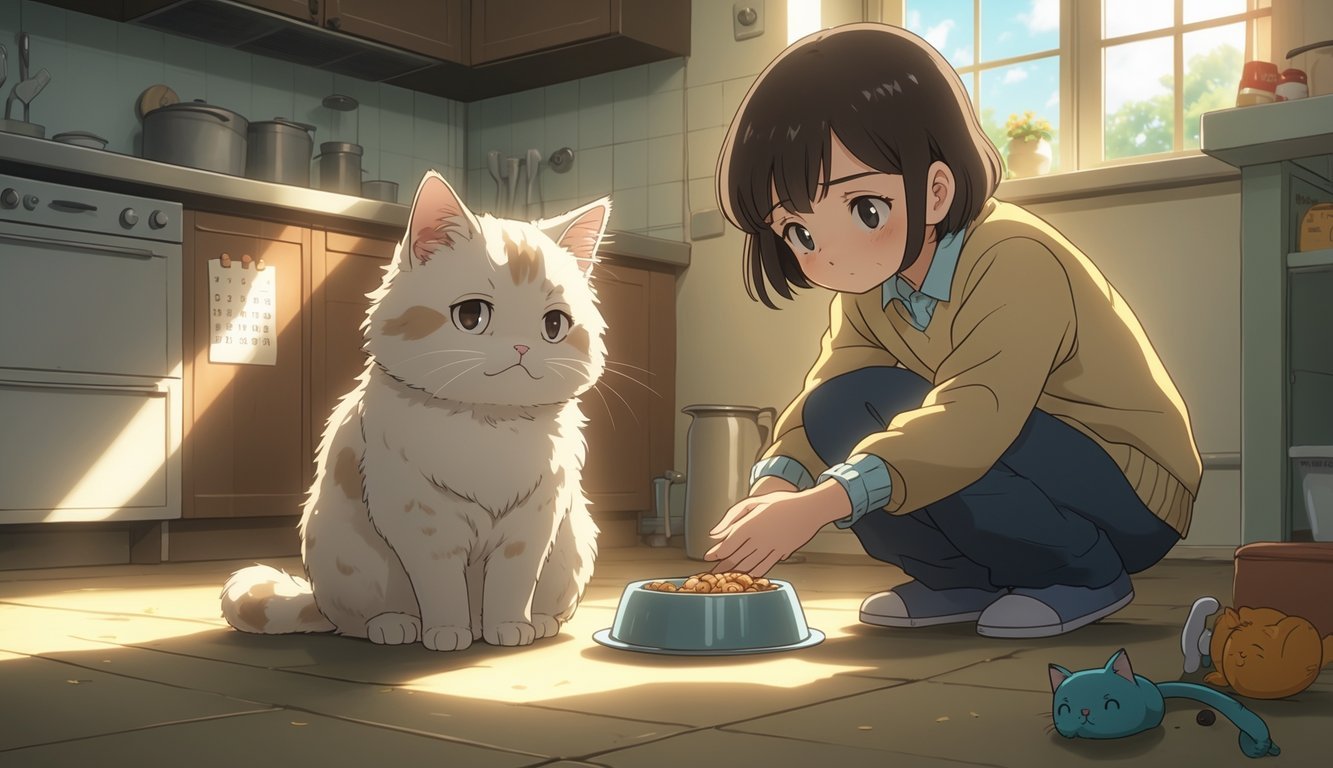
You probably know your cat’s meal routine better than anyone else.
If your cat suddenly eats way less or skips meals, something’s probably up. Even slight changes in appetite might point to stress, dental pain, or illness.
Most cats love their routines, so skipping food is a red flag. Sometimes, a lack of interest in meals means tummy troubles or infections.
But if your cat starts eating a lot more than usual, that’s worth noting too. Things like diabetes or thyroid problems can make cats hungrier than normal.
If your cat refuses to eat for more than a day, don’t brush it off. Cats can get sick fast if they stop eating, so it’s smart to call your vet.
Paying close attention to eating habits helps you catch problems early.
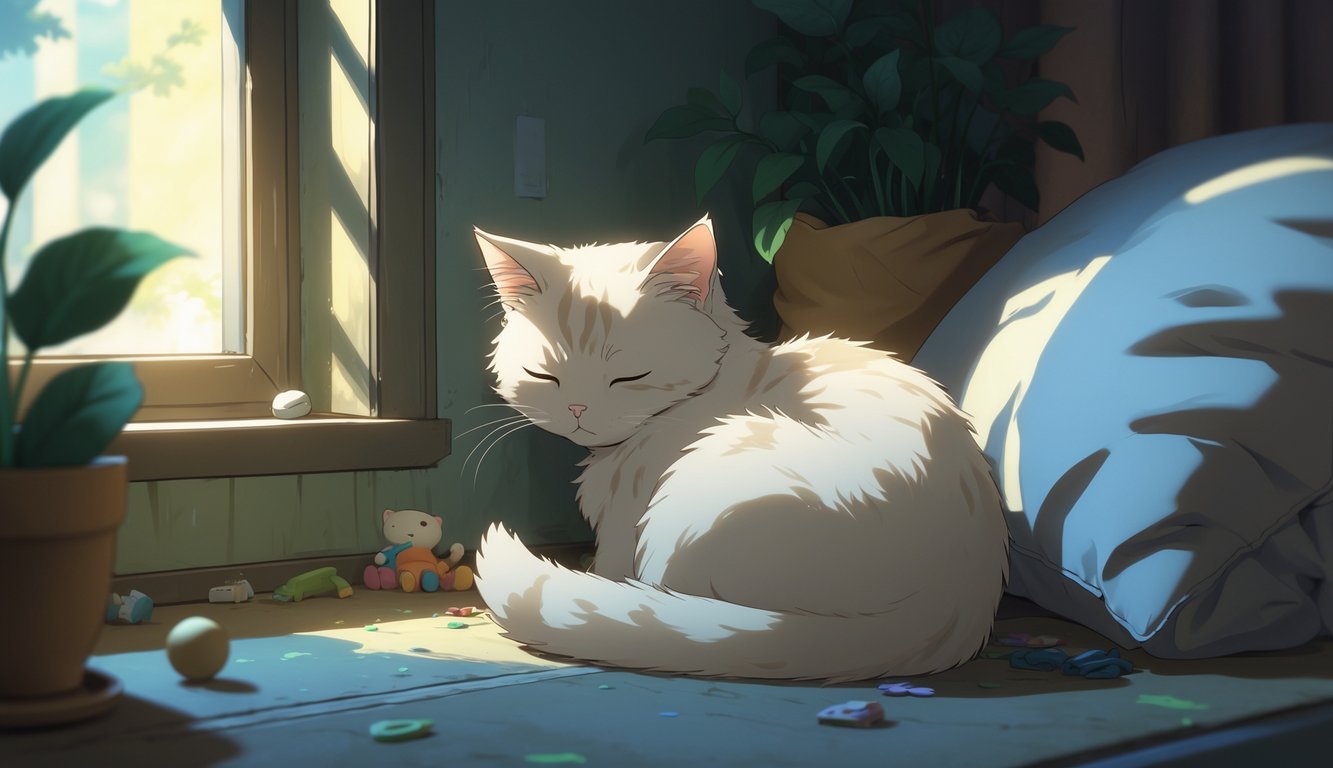
If your cat suddenly hides more than usual, that’s a clue something’s off.
Sure, cats like quiet spaces, but a big shift in this behavior can mean stress, pain, or illness.
Maybe you notice your cat slipping under the bed or into closets more often. That’s often how cats cope with feeling bad or scared.
Big changes at home—new pets, loud noises, visitors—can also send your cat into hiding. If they don’t come back out after things settle down, pay attention.
Cats try hard to hide illness, so hiding might be one of the only hints you get. If your cat hides more and also eats less or avoids you, it’s time to check with your vet.
Little changes like this can help you spot trouble before it gets serious.
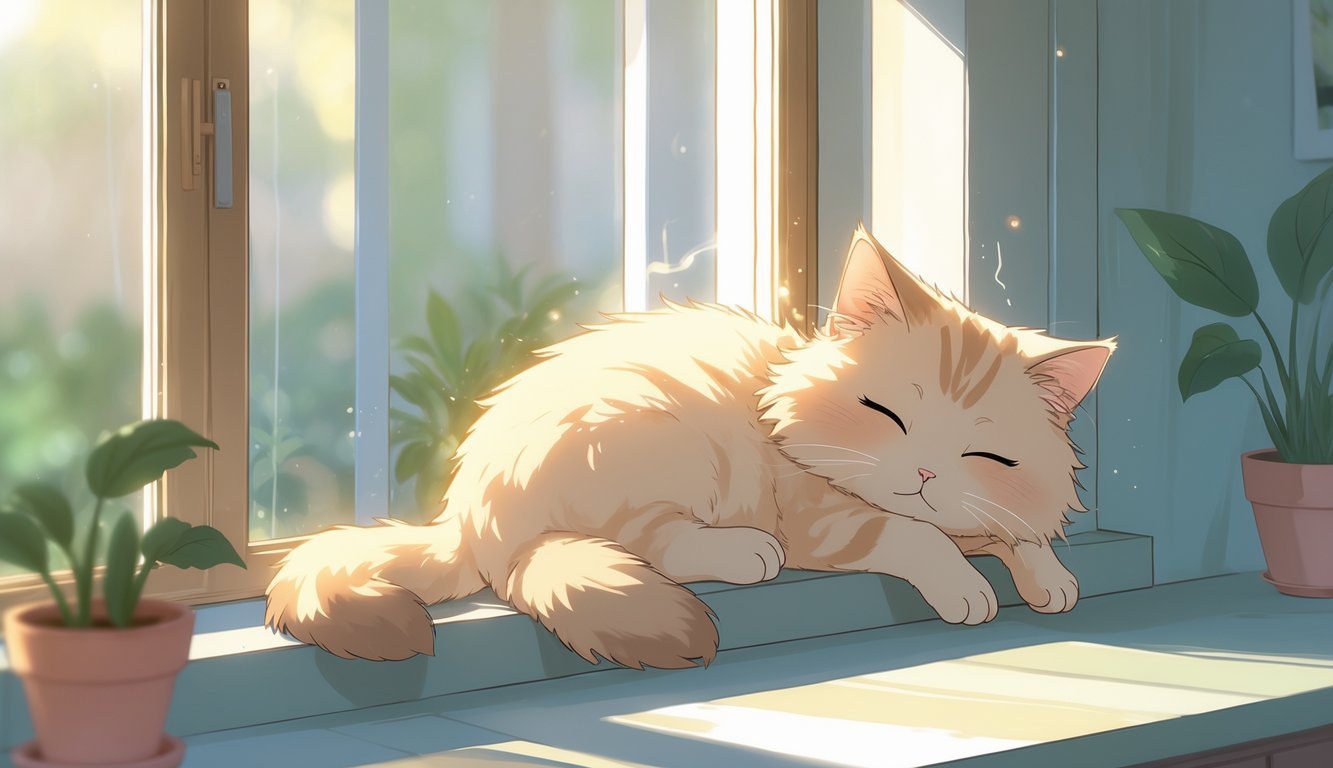
If your cat suddenly seems tired all the time, you should pay attention.
Cats do sleep a lot, but real lethargy means your cat avoids the usual fun stuff and seems less alert.
Maybe your cat doesn’t want to play, climb, or greet you anymore. They might just stay put and ignore what’s happening around them.
Some cats even stop grooming or don’t bother getting up to use the litter box. That’s a sign they might be hurting or sick.
Lethargy can come from lots of things—pain, infections, or other medical problems. Knowing how your cat usually acts makes it easier to catch these changes.
If your cat suddenly seems weak or less active, call your vet. It’s always better to be safe.
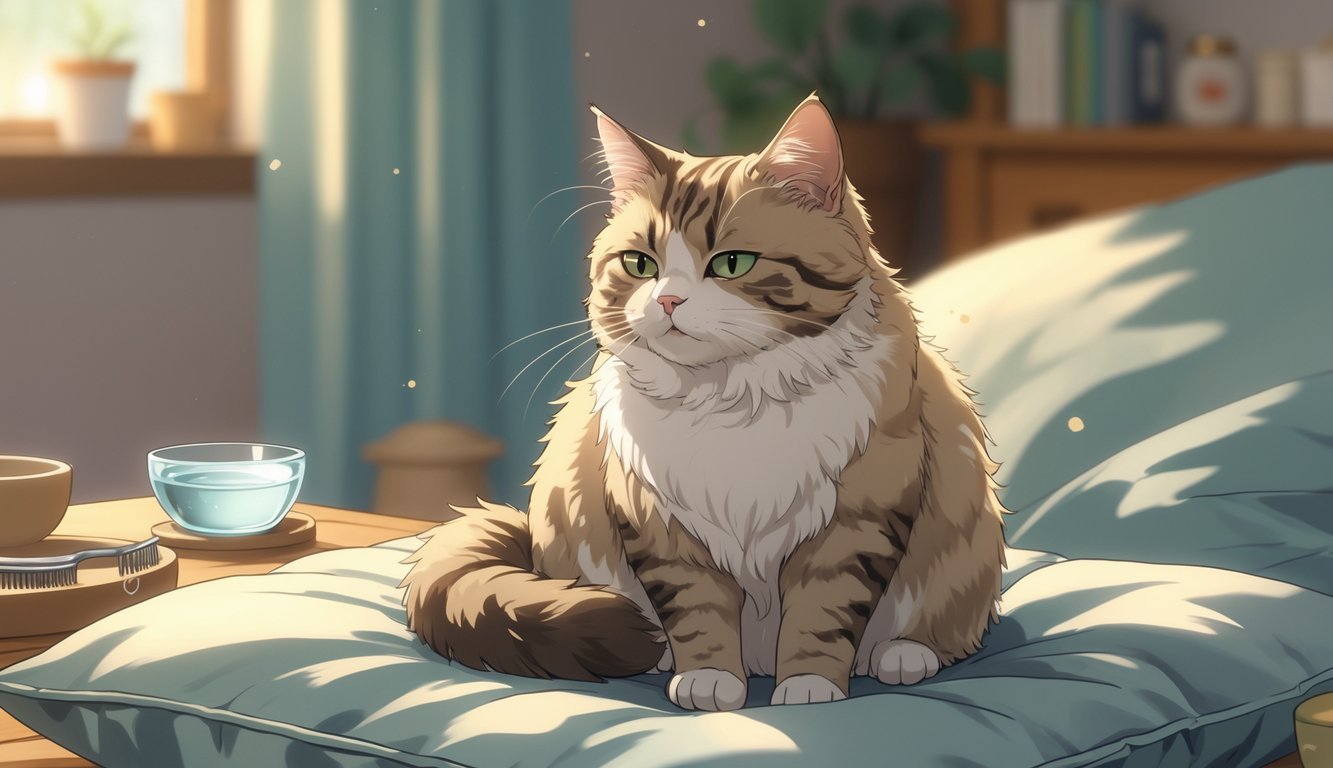
You’ve probably noticed your cat spends ages grooming. That’s normal.
But if your cat starts licking or biting one spot too much, you might spot bald patches or sore skin. Over-grooming can come from stress, allergies, or pain.
On the flip side, some cats stop grooming as much as they should. Maybe you see a dull coat, mats, or greasy fur. Cats usually skip grooming if they feel sick or moving hurts.
These changes aren’t always dangerous, but they’re definitely worth a closer look. If your cat starts grooming way more or way less, ask your vet what’s up.
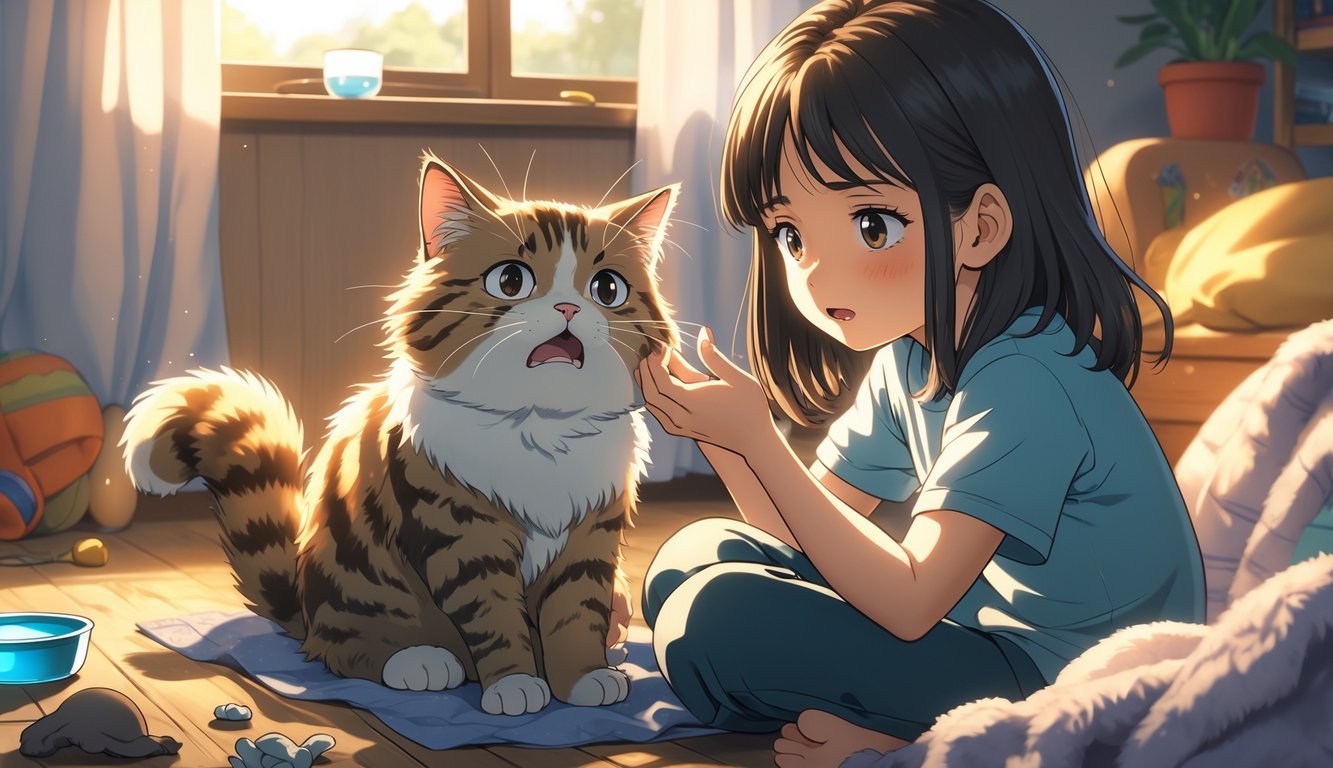
If your cat suddenly meows a lot more or cries loudly, you should take note.
Most cats stick to their usual sounds, so a sudden change stands out.
Extra meowing can mean stress, anxiety, or pain. Some cats cry when they’re lonely; others do it if they hurt.
Notice if your cat’s voice sounds different or more urgent than usual. A louder or more distressed cry can mean illness or injury.
Things like thyroid problems or urinary issues can also make cats meow more. If nothing improves, reach out to your vet.
Keeping your cat’s life calm and playful can help, but don’t ignore new or persistent vocal changes.
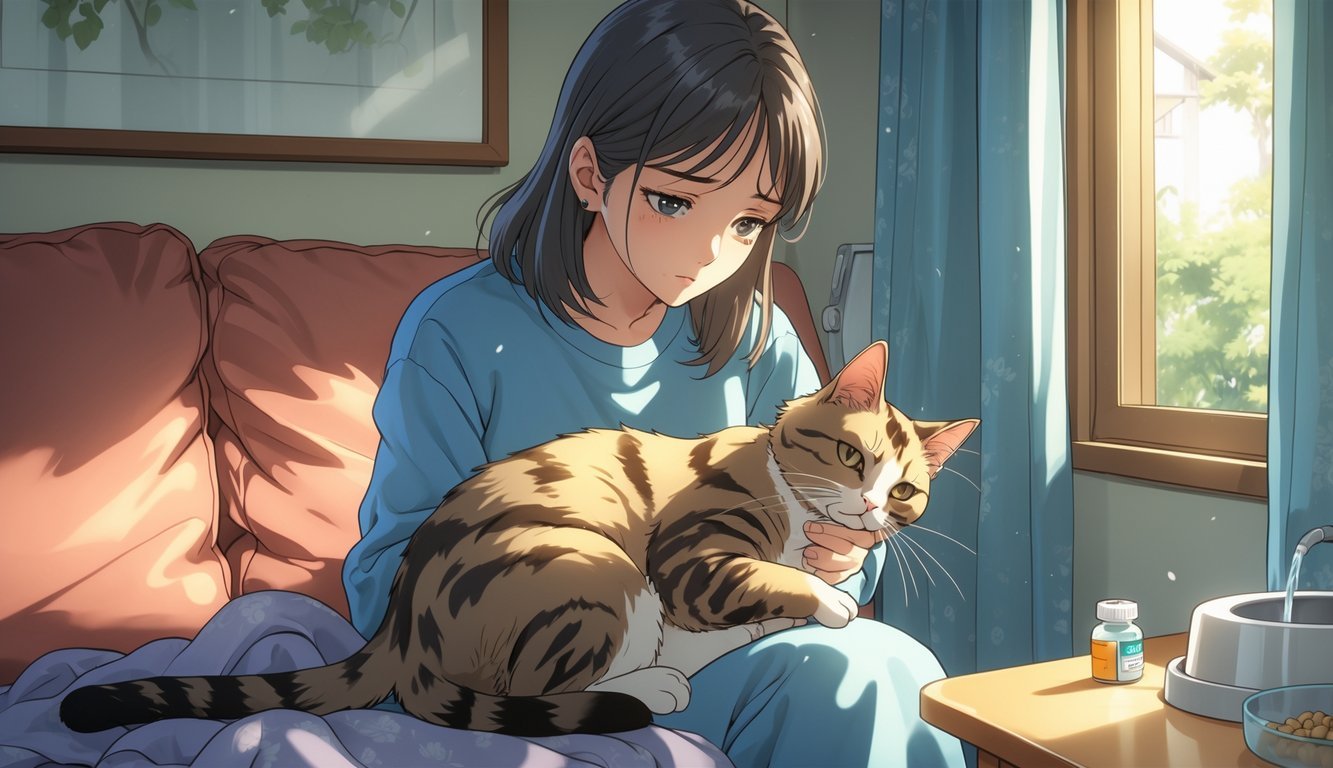
A single hairball isn’t a big deal, but if your cat vomits often, you should pay attention.
Diarrhea is another warning sign. One loose stool might not matter, but frequent or ongoing diarrhea can dehydrate your cat and signal illness.
Watch how often these problems happen and how bad they get. Jotting down details can help your vet figure things out.
Anything from food allergies to kidney disease could be the cause. Only your vet can say for sure.
If vomiting or diarrhea lasts more than a day, or you see blood, call your vet fast.
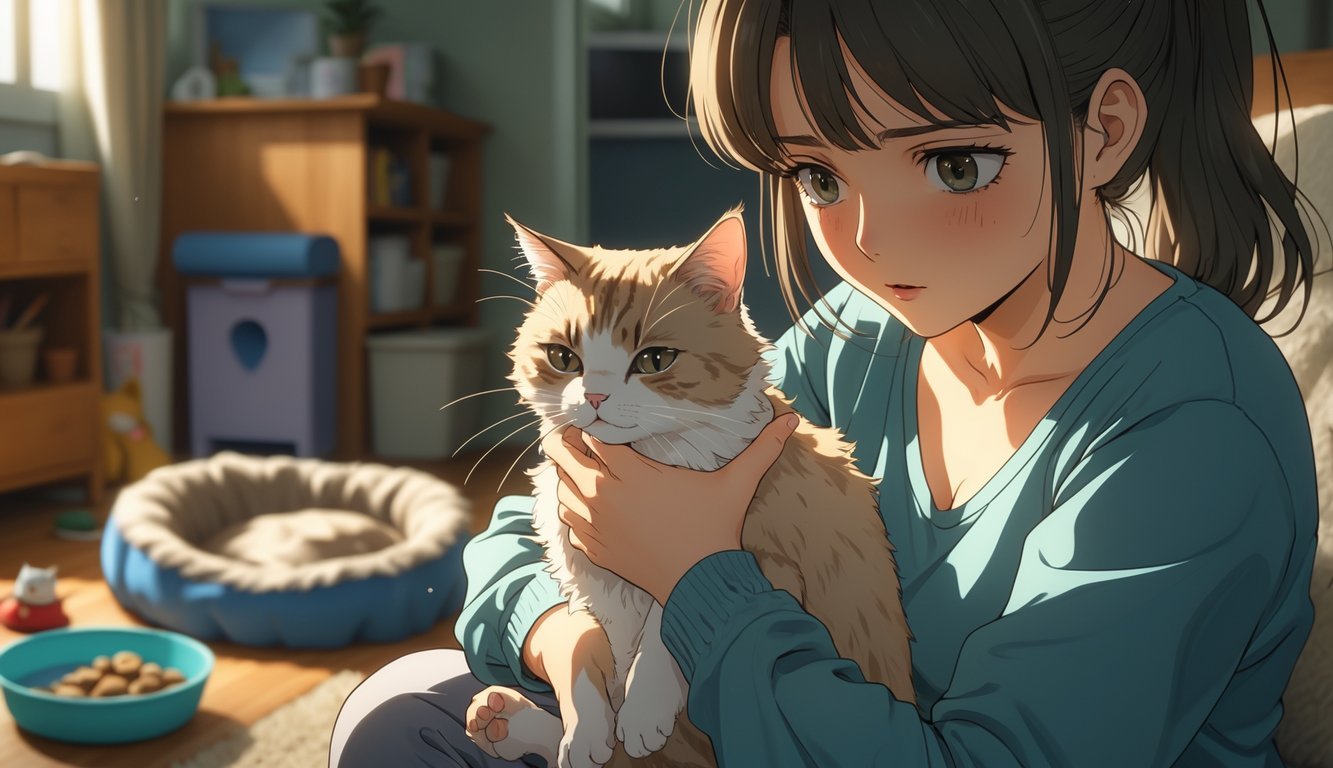
If your cat loses weight quickly, it’s usually a warning sign.
Cats don’t just drop pounds for no reason—things like diabetes or digestive issues might be behind it.
Sudden weight gain can also mean trouble. Sometimes it’s just extra treats, but if your cat gets heavier for no clear reason, it could mean fluid buildup or other health problems.
Feel your cat’s body now and then. If their ribs or spine suddenly stand out, or they get heavier without eating more, take note.
Weighing your cat at home or at the vet helps you spot changes early. Even small shifts can reveal problems before they get worse.
If you notice sudden changes, don’t wait—talk to your vet.
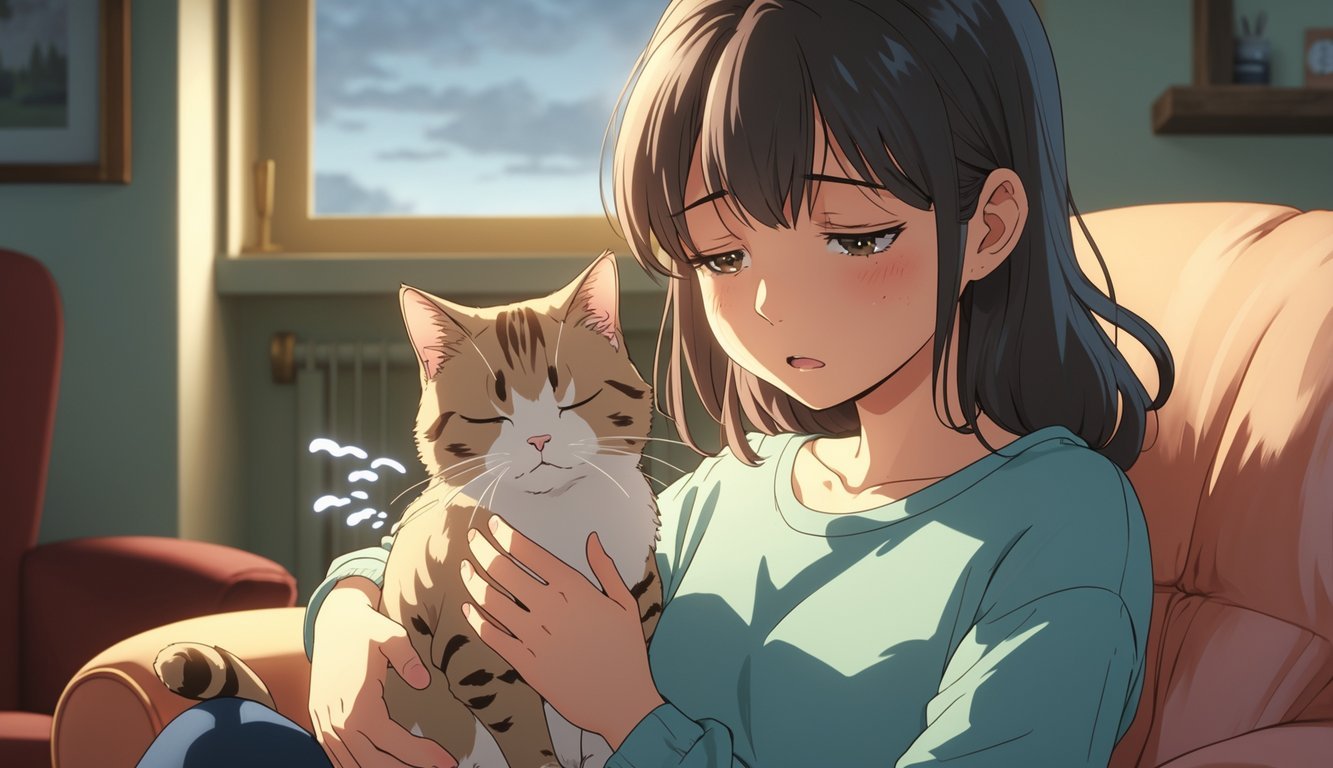
If your cat starts breathing faster than normal, wheezing, or struggling to breathe, you shouldn’t ignore it.
Cats tend to hide illness, so if you see breathing trouble, something serious might be happening.
Coughing in cats is rare, so even a little coughing can mean asthma, infections, or heart problems.
You might catch your cat sitting with their mouth open, stretching their neck, or avoiding movement because it’s hard to breathe. These are big warning signs.
Breathing problems can come from fluid in the lungs, allergies, or something blocking the airway. These issues can get bad fast, so call your vet as soon as you notice them.
Keep an eye out for little things, like noisy breaths or bluish gums. These details help your vet figure out what’s wrong.
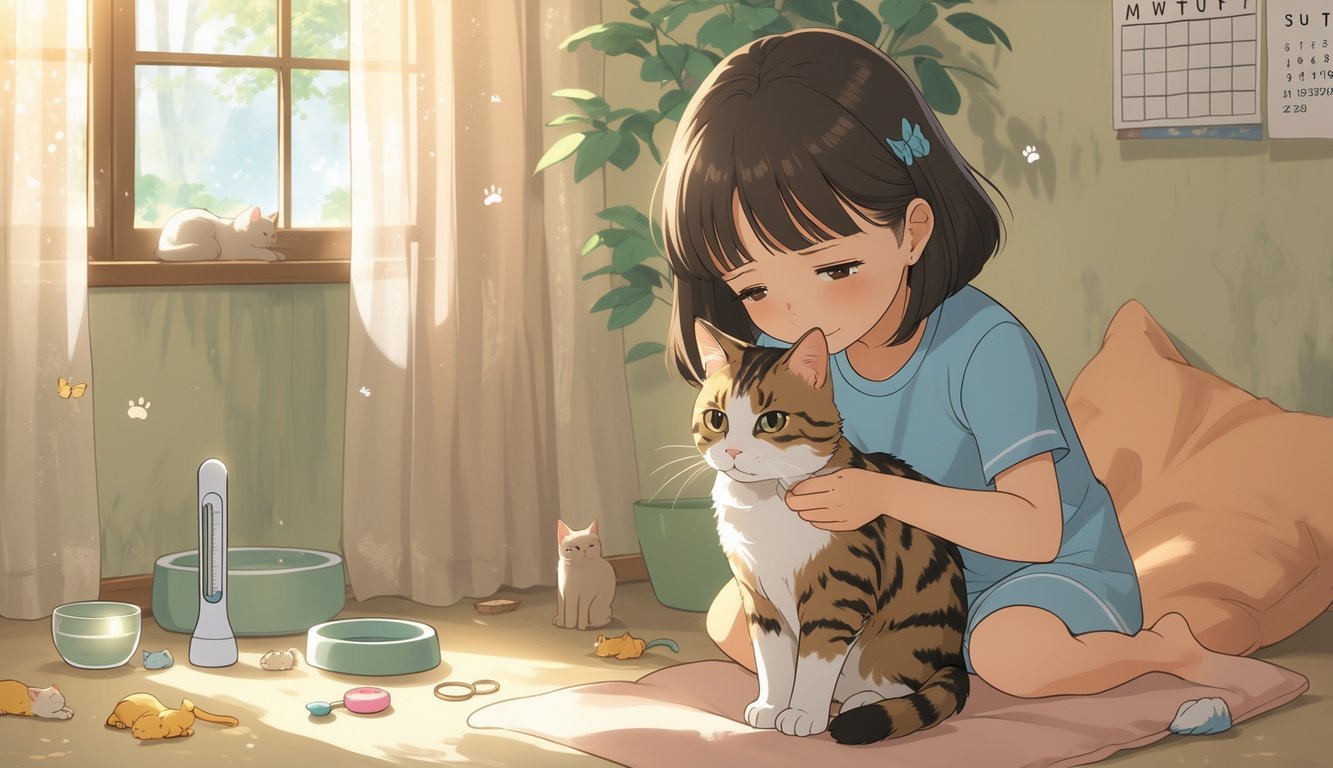
Cats do a pretty good job hiding pain or weakness, so you might not see a problem until it’s gotten worse.
If you notice small changes in behavior, appetite, or grooming, you’ll be able to act quickly and help your cat stay healthy.
When you spot early signs of illness, taking your cat to the vet right away makes treatment easier and more likely to work.
A lot of conditions—dental disease, kidney trouble, infections—respond better if you catch them early.
Acting quickly usually saves money, too. Fixing a minor problem costs less than dealing with a serious one later. For example, cleaning teeth early is a lot cheaper than surgery for severe dental disease.
Your cat’s comfort matters. Sometimes cats hide pain, but untreated problems can cause long-term suffering. Booking a vet visit soon lowers the risk of complications and helps your cat recover faster.
Benefits of early vet care include:
Cats instinctively hide weakness—blame their wild ancestors for that. This makes it easy to miss early warning signs.
Small changes, like eating less or hiding more, can mean something’s wrong.
You might notice physical changes, too—weight loss, a dull coat, or odd litter box habits. Each sign might seem minor, but together they can point to a health issue.
Because these signs are often mild, trust your gut. If your cat just seems “off,” pay attention. Even tiny shifts in mood or routine can be early clues.
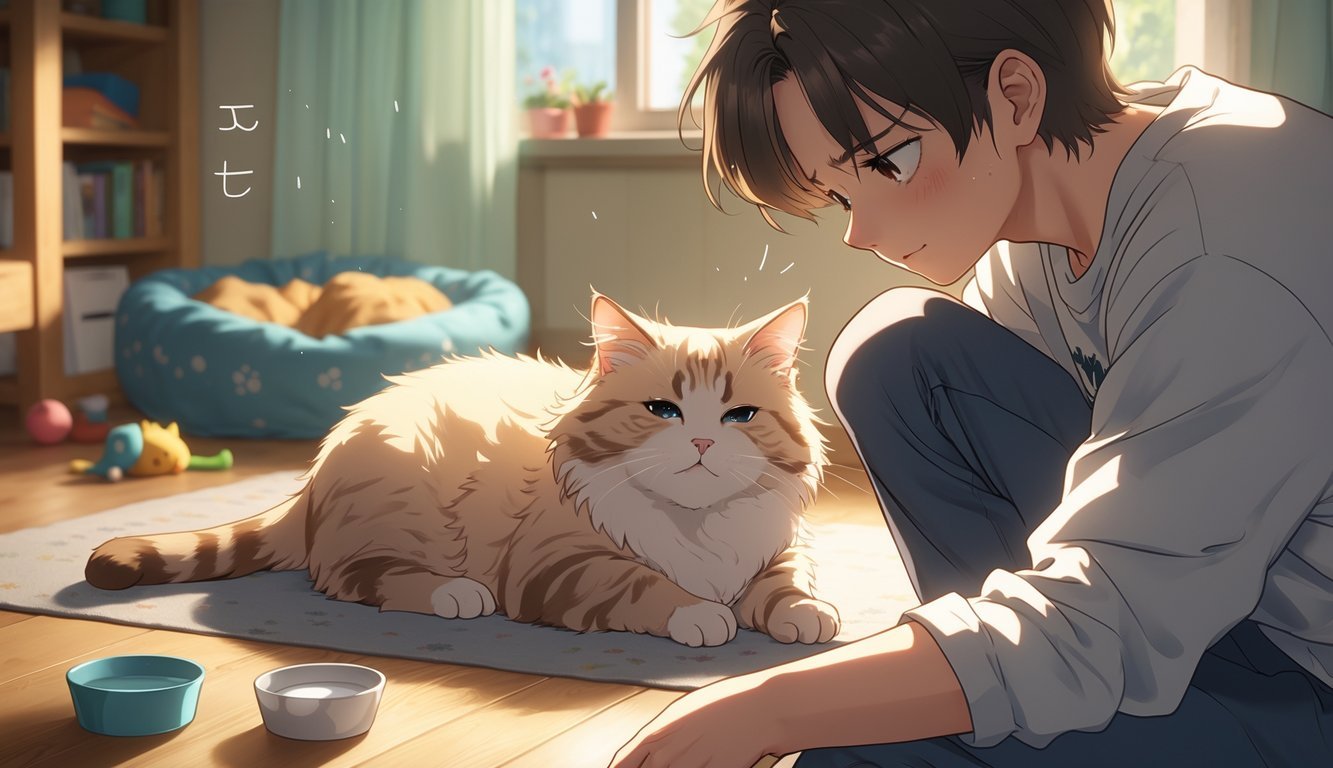
If your cat starts acting in ways that don’t match their usual habits, something might be wrong.
Notice when it happens, how often, and what’s changed in their daily routine. That’ll help you figure out how quickly to act and what to do next.
Call your vet if your cat suddenly acts different or if something seems off. Maybe your cat refuses to eat for more than a day, keeps throwing up, breathes with effort, or hides for hours on end.
These changes can mean something’s seriously wrong, and your cat needs a professional to check things out.
If you spot blood in urine or stool, seizures, or sudden aggression, don’t wait around. Get in touch with your vet right away.
Even if your cat looks okay afterward, there’s probably an underlying problem you just can’t see.
For concerns that aren’t emergencies—like drinking way more water than usual or obsessively grooming—go ahead and book a checkup soon. Stuff like this can point to things like kidney disease, thyroid issues, or skin problems.
Not sure what to do? Just call your vet and describe what’s going on.
They’ll let you know if your cat needs to come in now, or if it’s okay to keep an eye on things at home for a bit.
Keep a simple log of your cat’s behavior. Jot down when you first noticed changes, how often they show up, and anything else that stands out—like appetite or litter box habits.
Your vet will appreciate these details, and honestly, you might catch patterns you’d otherwise miss.
Check your cat’s eating, drinking, and bathroom use every day. If you notice a sudden drop in food intake, more water drinking, or weird changes in stool or urine, don’t ignore it.
Watch for physical signs like weight loss, limping, or changes in grooming. Cats are sneaky about pain, so even small things can matter.
You can also keep an eye on stress triggers. Maybe the behavior pops up after loud noises, visitors, or a shake-up in their routine.
Spotting these patterns could help you lower your cat’s stress and give your vet something concrete to work with.
Use a mix of notes and simple checklists to keep things on track. That way, it’s easier to explain what’s going on and make sure your cat gets the care they need.